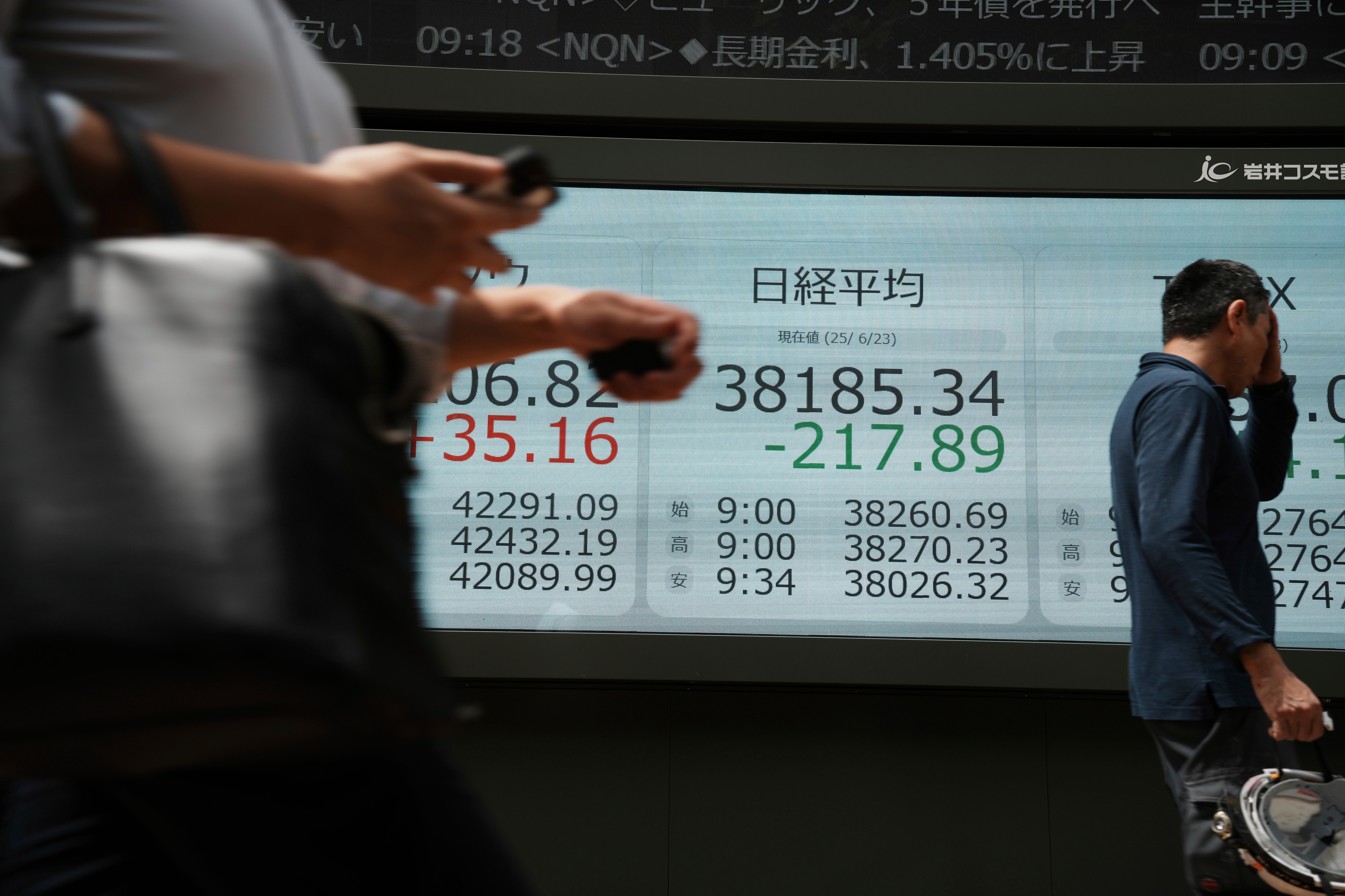The market impact of the U.S. entry into conflict on Iranian territory this weekend is much milder than anticipated on Sunday. Investors are learning, and they are doing so quickly. Unless the war escalates due to Tehran's response, for now, the markets are stoically weathering the nervousness, and stocks are not dramatically declining. Moreover, the nearly 6% surge seen in the price of the European Brent earlier this morning, above 81 dollars, has now subsided, containing its increase to 77 dollars per barrel. The American West Texas is trading below 74 dollars.
In Europe, the stock markets are experiencing a session of moderate ups and downs in a market that is indecisive at the start of the week. The initial losses of the Ibex 35 ended the session almost imperceptibly, at 0.08%, allowing the index to hold above 13,800 points. This situation is mirrored in the rest of Europe, with slightly more pronounced losses in the case of the Paris Stock Exchange, due to the decline of cosmetic and luxury firms like L'Oreal or Kering, with a drop of nearly 0.7%, while the German Dax Xetra decreased by 0.3%.
On Wall Street, the market opening brought some calm after futures had anticipated more significant declines in the main indices. The S&P 500 is up 0.30% at the European close. The tech-heavy Nasdaq 100 is up 0.4%.
This Sunday, the Iranian Parliament approved the closure of the Strait of Hormuz following the U.S. attack on three of its nuclear facilities. This strait is a crucial maritime passage through which 20% of the world's oil transits, with China playing a key role. China receives a fifth of all oil exports from the ayatollah regime, which is why the U.S. has reportedly sought its mediation in the conflict to prevent its closure. According to Bloomberg, their analysts believe that the Iranian regime is acting alone, as their traditional allies like China and Russia have only offered "rhetorical support," and their pro-military groups like Hamas and Hezbollah are "unable to muster a common response."
The Chief Economist of AXA IM, Gilles Moëc, emphasizes that "the market's reaction to the U.S. attack will depend on how far Iran decides to retaliate. We still believe that closing the Strait of Hormuz would be counterproductive for Iran: beyond the military response it would provoke, it would drastically reduce its financial capacity and strain its relationship with China, which heavily relies on Gulf oil. In a rational calculation, Tehran should opt for caution," he concludes.
JP Morgan analysts warn that whenever a regime change has occurred in the region, oil prices have typically surged by up to 76% and, on average, by 30%. Another U.S. bank, Goldman Sachs, also does not rule out prices exceeding 110 dollars per barrel if the Strait of Hormuz remains closed for a month.
Another alternative is selective interruptions in oil supply. This is suggested by analysts at the Commonwealth Bank of Australia in statements reported by Reuters, who consider it a more forceful way to "deter oil tankers" and would make "more sense than closing the Strait of Hormuz, given that Iran's oil exports would be suspended" if the conflict escalates. They also foresee European crude oil reaching minimum levels of 100 dollars per barrel if this situation escalates.
